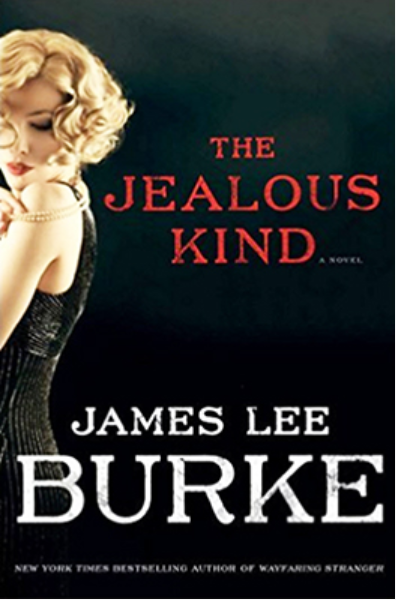
TEXAS HISTORICAL FICTION / SUSPENSE
James Lee Burke
Simon & Schuster
Hardcover, 978-1-501-10720-7 (also available as an ebook, an audio book, and on Audible), 288 pgs., $27.99
August 30, 2016
It’s 1952 on Galveston Beach and seventeen-year-old Aaron Holland Broussard hits a drive-in for a burger after a day in the salt. Feeling lucky after swimming through a school of jellyfish without being stung, Aaron intervenes in an argument between the beautiful, brilliant Valerie Epstein and her mob-connected boyfriend Grady Harrelson (who “always struck a pose that seemed to capture our times—petulant, self-indulgent, glamourous in a casual way, and dangerous, with no self-knowledge”).
Before it’s all over, this innocent intervention exposes a vast right-wing conspiracy of garden-variety hoodlums, the Galveston branch of Murder, Incorporated, stone-cold hitters straight from Sicily, corrupt cops, former spooks, and Ayn Rand–reading would-be brownshirts of River Oaks.
Aaron’s mother is bipolar, reminding him of “a crystal glass teetering on the edge of the drain board,” and his father is an alcoholic who belongs to “that generation of Southerners drawn to self-destruction and impoverishment as though neurosis and penury represented virtue.” Consequently, when the bad guys come for him, Aaron must depend upon Valerie, and his best friend Saber Bledsoe, “the trickster from classical folklore.”
James Lee Burke’s patented form of classical themes are all here: misuse of power and authority, how fear can corrupt decent people, violence, responsibility, religion, love, regret, (what should be) the sacred communion of sex, friendship, loyalty, betrayal, courage, forgiveness, and the possibility of redemption. The Jealous Kind is made of those “interlude[s] in time when the potential for good or bad could go either way.”
The intricate plot advances steadily with plenty of foreshadowing and twists to keep the pages turning. Burke’s characters are genuinely complex and allowed to develop realistically throughout the novel. Aaron’s first-person narration (“a young person on the edge of discovering the world and shaking away the scales of . . . youth”) is written from the perspective of sixty years hence. This lends a certain dissonance when Aaron appears to be wiser than his years, but this is a small flaw and infrequent.
Burke, owner of two Edgar Awards and named a Grand Master by the Mystery Writers of America, possesses a unique voice with such deliberate word choice that it creates its own atmosphere. He writes sentences that make you want to go outside where “[t]he sky was black, creaking with electricity, like someone crumpling cellophane” amid “trees swelling in the wind” to fill your lungs with the “odor of rain striking a hot sidewalk.” Grady Harrelson’s father has “an antiseptic cleanliness about him that made [Aaron] wonder if his glands were capable of secretion.” We’re on Burke’s planet now.
Burke scrapes the nostalgic shellac from the Father Knows Best version of the 1950s to expose the fault lines of socioeconomic class, despite an uncharacteristically sweet and sentimental final paragraph. Burke’s protagonists don’t go looking for trouble, but when trouble comes looking for them they have to shut it down, or it will keep returning and make of their lives rented things. The Jealous Kind is a coming-of-age tale about how to be an honorable person in an often less-than-honorable world.
Michelle Newby is contributing editor at Lone Star Literary Life, reviewer for Kirkus, freelance writer, member of the National Book Critics Circle, blogger at www.TexasBookLover.com, and a moderator at the 20th annual Texas Book Festival. Her reviews appear in Pleiades Magazine, Rain Taxi, World Literature Today, High Country News, South85 Journal, The Review Review, Concho River Review, Monkeybicycle, Mosaic Literary Magazine, Atticus Review, and The Collagist
